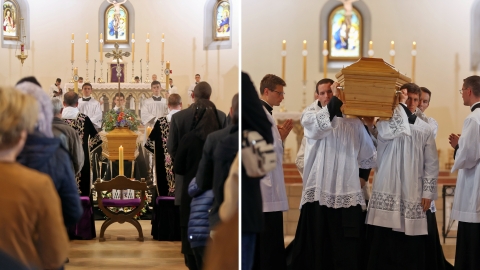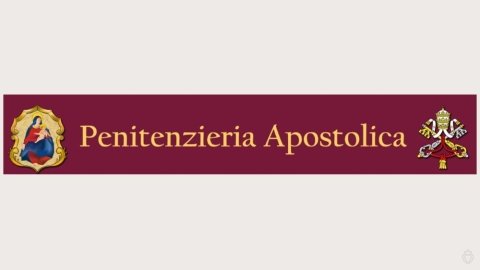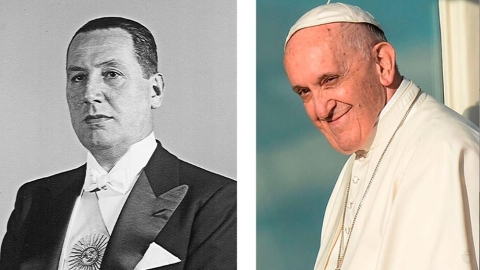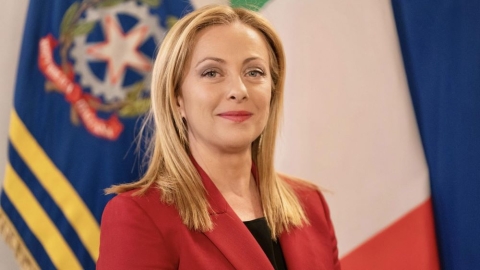Bishop Fellay indirectly comments upon the encyclical.

The SSPX has not yet proposed a study on the encyclical Deus Caritas est. Nevertheless, we can see in the sermon of February 2nd in Flavigny, an indirect comment by Bishop Fellay upon an important point of the second part of the pontifical document.
Concerning the relations between Church and State, the Sovereign Pontiff writes: "Fundamental to Christianity is the distinction between what belongs to Caesar and what belongs to God (cf. Mt 22:21), in other words, the distinction between Church and State, or, as the Second Vatican Council puts it, the autonomy of the temporal sphere. The State may not impose religion, yet it must guarantee religious freedom and harmony between the followers of different religions. For her part, the Church, as the social expression of Christian faith, has a proper independence and is structured on the basis of her faith as a community which the State must recognize. The two spheres are distinct, yet always interrelated.
(…)what is justice? The problem is one of practical reason; but if reason is to be exercised properly, it must undergo constant purification, since it can never be completely free of the danger of a certain ethical blindness caused by the dazzling effect of power and special interests.
(…)Faith enables reason to do its work more effectively and to see its proper object more clearly. This is where Catholic social doctrine has its place: it has no intention of giving the Church power over the State. Even less is it an attempt to impose on those who do not share the faith ways of thinking and modes of conduct proper to faith. Its aim is simply to help purify reason and to contribute, here and now, to the acknowledgment and attainment of what is just. (…)
The Church cannot and must not take upon herself the political battle to bring about the most just society possible. She cannot and must not replace the State. Yet at the same time she cannot and must not remain on the sidelines in the fight for justice. She has to play her part through rational argument and she has to reawaken the spiritual energy without which justice, which always demands sacrifice, cannot prevail and prosper. A just society must be the achievement of politics, not of the Church. Yet the promotion of justice through efforts to bring about openness of mind and will to the demands of the common good is something which concerns the Church deeply."
To this conception of the relations between Church and State, coming straight from the novel teaching of Vatican II on religious liberty, Bishop Bernard Fellay answered on February 2nd last, taking up the address of Benedict XVI to the Curia, at the end of December: "The pope, in his address of December 22, tells us that by returning to the laicized state, the Church came back to the Gospel. Yet the Gospel says the opposite! The Gospel says: "He must reign". Saint Paul wonderfully explains that all authority comes from God. All authority! And if we must submit to civil authorities it is because they are God’s lieutenants. These authorities receive power over men from God. They must give an account to God, to Our Lord Jesus Christ of the way they exercised power, whether they be Hitler, Nero, Gorbachev, Chirac, you name it. At the hour of their death, they all appear before Our Lord Jesus Christ to render an account of the way they exercise their power, because Our Lord is their King. Whether they be pagans or Christians, it is all the same: Our Lord is King of all!
We only have to look a little more closely at the influence of civil society on men’s life. It is so obvious that a civil society impregnated with the law of God will help the soul to work out its salvation, and the reverse is just as obvious. This civil society, in which each man daily lives, necessarily influences his life. For us, it is sheer evidence that the civil society must be in harmony with the Church. Thus the principles, the laws which govern and direct human life must be impregnated to the uttermost with the law of God, the ten commandments. Though the end of civil society is only temporal, there is no contradiction between the two. There must necessarily be a harmony; this is sheer evidence for us. But we dare say that for the present Pope, it seems that the laicized state is an evidence, an axiom. It is part and parcel of those principles which need not be proved. Hence an enormous problem, a stumbling block in our relations with the Roman authorities, which can be summed up in one word : the Council. And we perceive it very clearly in this issue of religious liberty. (See the text of this sermon in our Documents section)





